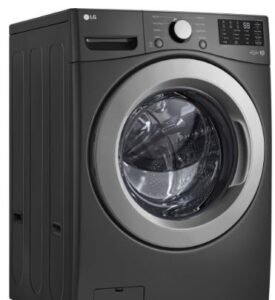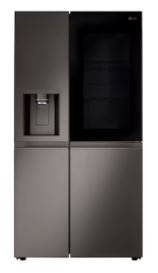A Complete Guide to Green Eco-Friendly Kitchen Appliances
Hey, today I want to talk to you about something that's becoming more and more important these days - eco-friendly kitchen appliances.
In recent years, there's been a growing trend towards greener living. People are looking for ways to reduce their environmental impact and the kitchen is a great place to start. Energy-efficient, eco-friendly appliances are becoming incredibly popular.
In this article, we'll take a deep dive into the world of green kitchen appliances. We'll explore the advantages and disadvantages, check out the best brands available, talk about prices, and see how they stack up against traditional appliances.

Benefits of Green Appliances
So first, let's look at the benefits of choosing eco-friendly appliances for your kitchen:
- Energy Efficiency: Green appliances are designed to use less energy than standard models. This can lead to some serious savings on your energy bills over time. For example, an Energy Star certified fridge uses about 15% less energy than a non-certified model. An Energy Star dishwasher can save you around 12% on energy costs compared to a regular one.
In fact, the EPA says that choosing Energy Star appliances can save the average household about $450 per year on their energy bills. That's a big deal.
Quick tip - when you're shopping, look for appliances with a high Energy Efficiency Ratio (EER) and low kilowatt-hour (kWh) consumption per year.
- Water Conservation: A lot of eco-friendly appliances, like dishwashers and washing machines, are designed to use less water than traditional models. This helps reduce your water bills and conserves a precious resource. Some high-end models even have advanced features like soil sensors that adjust the water usage based on how dirty your dishes or clothes are.
Appliances with the Water Sense label meet the EPA's strict criteria for water efficiency, saving an average of 3,800 gallons per year. And in general, front-loading washing machines use less water than top-loaders.
- Better Air Quality: Some green appliances, like stoves and ovens, produce fewer harmful emissions. This helps improve your home's air quality, which is especially important if you have allergies or respiratory issues.
When you're shopping, look for features like catalytic converters that help reduce emissions.
- Built to Last: Many eco-friendly appliances are made with high-quality components and sturdy construction. This means they can last longer so you won't need to replace them as often. That saves you money in the long run and reduces waste.
To get an idea of an appliance's durability, check the warranty and read reviews from other buyers.
- Tax Incentives & Rebates: Depending on where you live, you might be eligible for tax incentives or rebates when you buy eco-friendly appliances. These can help offset the upfront cost and make going green more affordable.
The Database of State Incentives for Renewables & Efficiency (DSIRE) website is a great resource for checking current incentives in your area.
Drawbacks to Eco-friendly Appliances
Now, eco-friendly appliances do have some potential drawbacks to consider:
- Higher Upfront Costs: Green appliances often have a higher price tag than standard models. This can be tough if you're on a tight budget.
But it's important to factor in the long-term savings on your energy and water bills. In many cases, these savings can more than offset the higher upfront cost over time.
- Limited Options: While there are more eco-friendly appliances available now than ever before, there may still be fewer options compared to traditional models. This can make it harder to find the exact features or style you want.
The good news is this is becoming less of an issue as demand for green appliances keeps growing.
- Learning Curve: Some eco-friendly appliances, especially ones with advanced features, may be a little trickier to use than what you're used to. It might take some time to learn all the ins and outs.
But most manufacturers provide user manuals and online resources to help you get up to speed quickly. And in the end, a slight learning curve is a small price to pay for the benefits.
Top Brands
So who makes the best eco-friendly appliances? Here are a few of the top brands:
• Energy Star: This is a government-backed certification, not a brand, but it's a great place to start your search. Appliances with the Energy Star label have met strict energy efficiency standards set by the EPA.
• Bosch: Known for high-quality, durable appliances, Bosch has a wide range of eco-friendly options. Their dishwashers are particularly well-regarded for energy and water efficiency.
• LG: LG offers many Energy Star certified appliances including fridges, dishwashers and washing machines. Their smart appliances can help you monitor and control your energy usage too.
• Whirlpool: Another brand with a strong commitment to sustainability. Whirlpool has many Energy Star options and their "6th Sense Live" technology lets you track and adjust your appliances from your phone to optimize energy use.
• Samsung: Samsung makes a variety of eco-friendly appliances including Energy Star certified fridges, washers and dishwashers. Their smart appliances have an "Eco Mode" that adjusts settings to minimize energy consumption.
When you're picking a specific model, always look for the Energy Star label first. Then compare the energy usage and water consumption specs between your options.
Some of the top-rated eco-friendly models include:
Refrigerators:
• LG LRSES2706V
• Bosch B36CL80SNS
• Samsung RF28R7201SR
Dishwashers:
• Bosch SHEM63W55N
• LG LDF5545ST
• Whirlpool WDT750SAHZ
Washing Machines:
• LG WM3900HWA
• Samsung WF45R6100AP
• Whirlpool WFW5620HW
A few other things to consider:
• Size & Capacity: Get appliances that fit your household's needs. Too big and you're wasting energy, too small and you'll run them more often.
• Features: Think about which features matter most to you, like energy-saving modes, smart tech integration, and noise levels.
• Reviews: Always read reviews from other buyers to get real-world feedback on a model's pros and cons.
Green Kitchen Appliance Pricing
So what about cost? The price of eco-friendly appliances can vary quite a bit depending on the brand, model, and features. In general, you can expect to pay anywhere from a few hundred to a few thousand dollars more for a green appliance compared to a standard model.
But don't forget about those long-term energy and water bill savings. In many cases, these savings can completely offset the higher upfront cost over the life of the appliance.
You can find eco-friendly appliances at most major retailers these days. Places like Amazon, Best Buy, and Home Depot all carry them. There are also some specialty retailers like Green Depot and Living Direct that focus on sustainable home products including appliances.
Performance
Performance-wise, today's eco-friendly appliances go toe-to-toe with standard models and often come out on top. Advances in technology have allowed manufacturers to create appliances that are super energy-efficient without sacrificing performance.
For example, many green fridges use advanced insulation and compressors to keep food fresh while drawing less power. Eco-friendly dishwashers often have sensors that adjust the wash cycle based on how dirty your dishes are, delivering a deep clean with less water and energy.
Again, the main difference is that higher upfront cost, but with the potential for long-term utility bill savings and the environmental benefits, many people find eco-friendly appliances well worth the investment.
Bottom Line Conclusion
The bottom line is this: choosing eco-friendly appliances for your kitchen is one of the best ways to reduce your environmental impact and save money in the long run.
Yes, the upfront cost may be a little higher and the options might be a bit more limited, but the energy and water savings, improved efficiency, and environmental benefits make it more than worthwhile.
By sticking with Energy Star certified appliances from top brands like Bosch, LG, Whirlpool, and Samsung, you'll have no trouble finding high-quality, high-performing options that fit your budget and your lifestyle.
As more and more people prioritize sustainability, I think we're going to see eco-friendly appliances continue to get even better. We're talking smart appliances that optimize their own energy use, appliances powered entirely by renewable energy, and more.
The future of green kitchens looks bright and by making the switch to eco-friendly appliances, you can be part of the solution. You'll save money, reduce your carbon footprint, and enjoy a cutting-edge kitchen that doesn't cut corners when it comes to performance.
If you've been thinking about upgrading your appliances, I highly recommend going green. Spend some time researching your options, read plenty of reviews, and don't be afraid to invest in quality. In the long run, you'll be glad you did.



